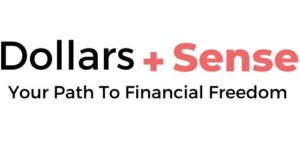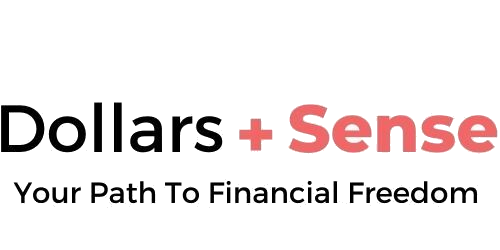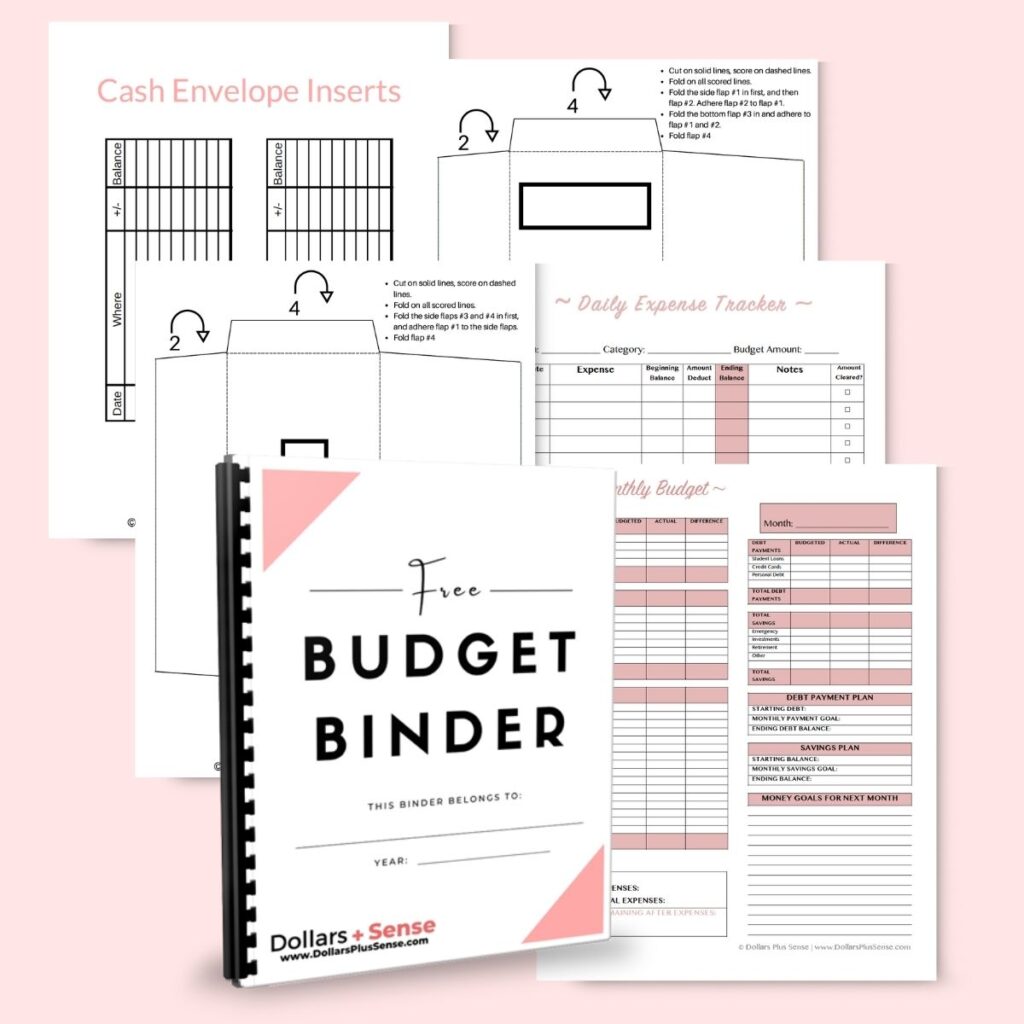Last Updated October 22, 2022
If you have a bad credit score, want to avoid a hard credit check, or are in a financial pinch, the good news is you could qualify for a guaranteed payday loan – no matter what. Believe it or not, there are lenders who are willing to work with you. In this blog post, I’m going to discuss how to get guaranteed payday loans no matter what (even if you have bad credit). Keep reading to learn if a guaranteed payday loan is right for you.
What are guaranteed payday loans?
A payday loan is a short-term cash loan that you can get quickly, regardless of your credit score. These loans are often used to cover immediate emergency expenses. Guaranteed payday loans have a high approval rate, usually around 80%, and even those with a bad credit score are often accepted.
How do payday loans work?
Payday loans work differently than consumer or personal loans. You can apply for a payday loan online or at a payday loan branch’s physical location.
When you apply for a payday loan, you’ll often get the money on the same day or the following business day. You’ll have the option to get cash, a check, or a direct deposit into your bank account. You will then need to repay the loan and any other charges by the due date, typically within 14 days or when you get your next paycheck.
When you get a payday loan, it will come with a finance charge. This fee depends on the original loan amount. Due to the short repayment terms of a payday loan, the APR, or annual percentage rate, is almost always very high. The Consumer Federation of America has found that the average APR on payday loans is around 400% or higher.

Payday loan laws vary depending on where you live. Different states have different regulations regarding payday loans, restricting how much you can borrow, how much interest the lender can charge, and sometimes prohibiting these loans altogether.
Despite the high interest rates and fees, payday loans are very popular, with about 2.5 million American households using these loans every year. This is likely because many people who use payday loans don’t have other financing options. Having bad credit or a low income can prevent you from getting different kinds of loans with less interest.
What are the benefits of guaranteed payday loans?
There are a few benefits to getting a payday loan, even with the higher interest rates and fees:
- Payday loans have a very high approval rate. This means that you’re more likely to be approved for a payday loan than for other types of loans, even if you have bad credit.
- You can get the money quickly. Sometimes you need a quick loan in time of need. With a payday loan, you can often get the loan on the same day or the following business day. This is much faster than getting a personal or consumer loan, which can take weeks or even months.
- Payday loans are very convenient. You can apply for a payday loan online with online lenders or at a physical location. You also have the option to get your money in cash, by check, or deposited into your bank account.
- You can use a payday loan to cover immediate unexpected expenses. If you need money urgently, a payday loan could be the solution you need.
- Payday loans are relatively easy to qualify for. You don’t need good credit to get a payday loan – in fact, many lenders don’t even do a credit check. This makes it easy for those who may not meet other lending requirements to get the money they need.

What are the drawbacks of guaranteed pay day loans?
There are a few drawbacks to getting a payday loan:
- The high-interest rates and fees can quickly add up. This means that you will end up paying much more for the loan than you originally borrowed.
- The repayment terms are usually very short. Usually, you need to be able to repay the loan within a few weeks, which may be difficult if you don’t have the money saved up.
- Payday loans are not available in all states. If you live in a state where payday loans are not legal, you won’t be able to get one. The states that currently prohibit payday lending are Arizona, Arkansas, Connecticut, Georgia, Maryland, Massachusetts, New Jersey, New York, North Carolina, Pennsylvania, Vermont, West Virginia, and the District of Columbia.
Who is eligible for a payday loan?
Bad credit payday loans usually have eligibility criteria that are easy to meet for most people. Thankfully, it isn’t necessary to have a good credit score to get this type of loan. Here’s what you need to be eligible:
- Be 18 years of age or older.
- Be an American citizen or a permanent U.S. resident.
- Have an active checking account.
- Have a steady source of income.
This eligibility criterion may vary based on the state laws or lenders. The most important thing to remember is that these loans are easy to get, even if you have a poor credit score.

How to get a guaranteed payday loan?
A payday loan application process is usually straightforward. You can often apply for a guaranteed payday loan online – all you have to do is follow the steps below.
Fill out the application and submit the request
Find an online loan application and fill out your information. You’ll need to provide your name, checking account details, and other personal information. After double checking that information you provided is correct, submit the request. Luckily, applying for a guaranteed payday loan does not require a hard credit check.
Loan approval
After your loan request is received, your application will be submitted to an extensive network of direct lenders, and one of them will contact you with an instant approval decision. If positive, they will present you with a loan offer.
Sign the agreement

Read through the terms and conditions, deadline, and additional costs. If you have any questions, be sure to ask the lender right away before signing. Once you agree to the terms, you and the lender will digitally sign the contract.
Receive the cash
After signing the contract, you’ll usually get the money by the end of the day or the next business day, especially if the payday lender approves your request before noon on a workday. If payday lenders receive your request in the afternoon, you’ll likely get it the next business day.
Pay back the loan
On the due date, you’ll need to pay back the loan. Before the deadline, ensure that you have enough money in your account to cover the loan; if you don’t have enough in the bank, you’ll often have to pay extra fees. The payday lender will typically automatically withdraw the money from your bank account unless otherwise noted.
What are the requirements for a payday loan?
Payday lenders generally require you to have:
- An active bank account.
- A valid ID stating that you are over the age of 18.
- Proof of a steady job or income source.

How much can you borrow with a payday loan?
Payday loans can range between $50 to $1,000, depending on the laws within your state. According to CFPB, the median payday loan is around $350 on a two-week term. In 2022, 32 states allow payday lending with a limited loan amount.
The highest maximum loan amount in the United States is $1,000 in Illinois, Idaho, and Delaware, while Utah, Maine, Wisconsin, and Wyoming currently have no limit. California and Montana have the lowest cap at $300. Some states, such as Nevada and New Mexico, limit each payday loan to 25% of the borrower’s monthly income.
Calculating the maximum loan amount
Because maximum payday loan amounts vary based on where you live, you’ll want to check your state website or ask your payday lender the limit for your area.

To calculate your total loan amount, you need to factor in the APR, which you can do using the formula below.
APR = ((finance charge / loan amount) x 365) / term x 100
For example, if the finance charge were $15 on a $100 loan due in 14 days, you would plug in the numbers like this:
APR = (15/100) x 365) / 14 x 100
APR = 391.07%
Therefore, even if your original loan amount was $100, you will owe around $391 after a year if you don’t pay the loan back in the agreed-upon time.
Factors that affect the loan amount
A bad credit rating will not affect the guaranteed loan amount, but a few other factors will influence this number. As previously stated, state laws will impact the maximum loan amount, usually ranging from $350 to $1,000.
Your income is another major factor that will affect the loan amount. If you want short-term loans that exceed the value of your next paycheck, you may not be approved for that amount.

What are loan fees?
When credit is extended, additional fees can be tacked on. This could be an annual fee on credit cards, or a loan origination fee on a mortgage. Loan fees depend on the loan type, but payday loans almost always have additional fees.
How much are payday loan fees?
Payday loan fees usually vary between $10 and $30 per $100 borrowed, but this depends on the laws in your state. However, one of the most common fees is about $15 per $100 borrowed.
What are the different types of loan fees?
In addition to the standard $10-$30 fee tacked on to every $100 borrowed, there are other fees associated with payday loans – you can learn more below.
Late fees: If you don’t pay the loan on time, the lender will likely charge a late or returned check fee, depending on the state laws where you live. Your bank could also charge a “NSF,” or non-sufficient funds charge, if your loan repayment doesn’t go through due to a lack of funds in your account.
Rollovers: If you cannot repay the loan when it is due, the payday lender may allow you to only pay the fees, then extend the loan’s due date. Because of this extension, you could be charged another fee on top of the existing fees.
Repayment plans: In certain states, the law requires lenders to provide extended repayment plans to those with difficulty repaying their loans. Depending on the state, you may have to pay an additional fee to use a repayment plan.

Understanding the interest rate
The annual percentage rate (APR) on a payday loan is typically much higher than on other types of loans. This is because payday loans are meant to be short-term, high-interest loans. The higher the APR, the more you will end up paying in interest and fees if you don’t repay the loan on time. So it’s important to understand the APR before you take out a payday loan.
What is the repayment schedule for a payday loan?
The repayment schedule for a payday loan is typically very short, usually only two weeks. This means that you would need to pay back the entire loan amount, as well as any associated fees, within that two-week time frame. Failing to do so could result in additional penalties, such as late fees or rollover fees.
How much is owed for each payment?
The amount you owe on a payday loan will vary depending on the state you live in, the amount of the loan, and the fees associated with the loan. However, on average, borrowers will end up paying around $15 per $100 borrowed. So if you borrow $300, you can expect to pay back around $450 in total.
What happens if a payment is missed?
If you cannot repay the loan when it is due, the payday lender may allow you to only pay the fees, then extend the loan’s due date. Because of this extension, you could be charged another fee on top of the existing fees.
If you still don’t pay the loan by the extended due date, the lender may then choose to withdraw the money directly from your bank account. This will only happen if you’ve given them access to your bank account as part of the loan agreement.
If the withdrawal attempt does not go through, they may break the charge into smaller amounts to get whatever money is in your account. Each failed withdrawal attempt can trigger a bank fee against you. If they’re successful at withdrawing money, that could drain your bank account and cause other transactions to bounce—also resulting in fees.
At the same time, lenders will start making collections calls, which can be very harassing and cause a lot of stress. If you are struggling to repay your payday loan, it’s important to reach out to the lender and try to work out a repayment plan before things get too out of control.
How to repay a payday loan
Here are some tips for repaying your payday loan:
1. Make a budget and stick to it.
When you know exactly how much money you have each month, it’s easier to figure out how much you can afford to put towards repaying your payday loan. Creating a budget will also help you track your expenses so you can see where your money is going each month. This can be helpful in finding areas where you may be able to cut back in order to free up more money to put towards repaying your loan.
If you need help making a budget, check out my FREE Monthly Budget Worksheet. Once you have a budget in place, make sure to stick to it as closely as possible. This will help ensure that you are able to repay your loan on time.
2. Try to pay more than the minimum payment each month.
This will help reduce the amount of interest you’ll end up paying. Keep in mind though, if you can only afford the minimum payment, it will take longer to repay your loan and cost you more in interest. Paying off your payday loan as quickly as possible is the best way to save money on interest and fees.
3. Look for ways to make extra money.
There may be some opportunities to make some extra cash that can be used to repay your payday loan. This could include selling some of your belongings, picking up a part-time job, or finding creative ways to make money. Making extra money can be tough, but it’s worth it if it means getting rid of your payday loan debt as quickly as possible.
Here are some articles I’ve written to help you make some extra cash FAST!
- How To Make Money With 500 Dollars: 90+ Proven Strategies
- 70+ Things You Can Sell to Make Money Now
- 5 Easy Ways to Make Money From Robinhood (Plus 3 More Advanced Tips)

4. Seek help from a credit counseling agency.
If you’re really struggling to repay your payday loan, credit counseling can help you develop a repayment plan that works for you. Be sure to choose a reputable agency though, as there are some scam artists out there posing as credit counselors.
What to consider before taking out a payday loan
Although payday loans are a popular solution to emergency financial issues, you may want to consider alternatives before turning to this kind of loan. You should definitely consider other options if you know you won’t be able to pay the loan back on time.
1. Borrow from family or friends
Despite the embarrassment, borrowing money from close friends or family is usually the least expensive way to deal with a financial emergency. While you don’t want to make a habit out of this, you can draw up an agreement that clarifies the loan terms so that both parties are on the same page.

2. Paycheck advance
Some companies will allow their employees to access their earned money before payday. For example, if you have worked seven days but your payday isn’t for another week, you can get paid for the seven days you already worked, which will automatically be deducted from your next paycheck.
3. Local charities or churches
Many churches and charities are ready and willing to help those in financial need. You can look into organizations like United Way, the Salvation Army, or your local church, who will usually be willing to provide meals, pay a bill or two, or help you with your housing situation.
4. Community banks and credit unions
Check out your local bank or credit union; these entities usually have more manageable repayment terms for smaller loans due to regulations. The interest rates at a community bank or credit union could be between 10-12%, rather than the typical 400-500% for payday loans.
5. Peer-to-peer lending
Consider checking rates on a peer-to-peer lending site. If you have a bad credit score, the interest rates could be up to 35%, but this is still a lower interest rate than the 400% offered by a payday lender.
Summary
Getting a guaranteed payday loan no matter what can certainly help you if you’re in a bind and need some extra cash. However, you want to make sure you understand the terms and repayment schedule before taking out any guaranteed payday loans. Just be sure to consider all your options first, as payday loans can be quite expensive. Maybe you can borrow from family/friends, take out a paycheck advance, or borrow from other financial institutions first. But, if you do decide to go the payday loan route, make sure you are prepared to repay the loan on time to avoid any extra fees or interest charges.
Related Articles:








